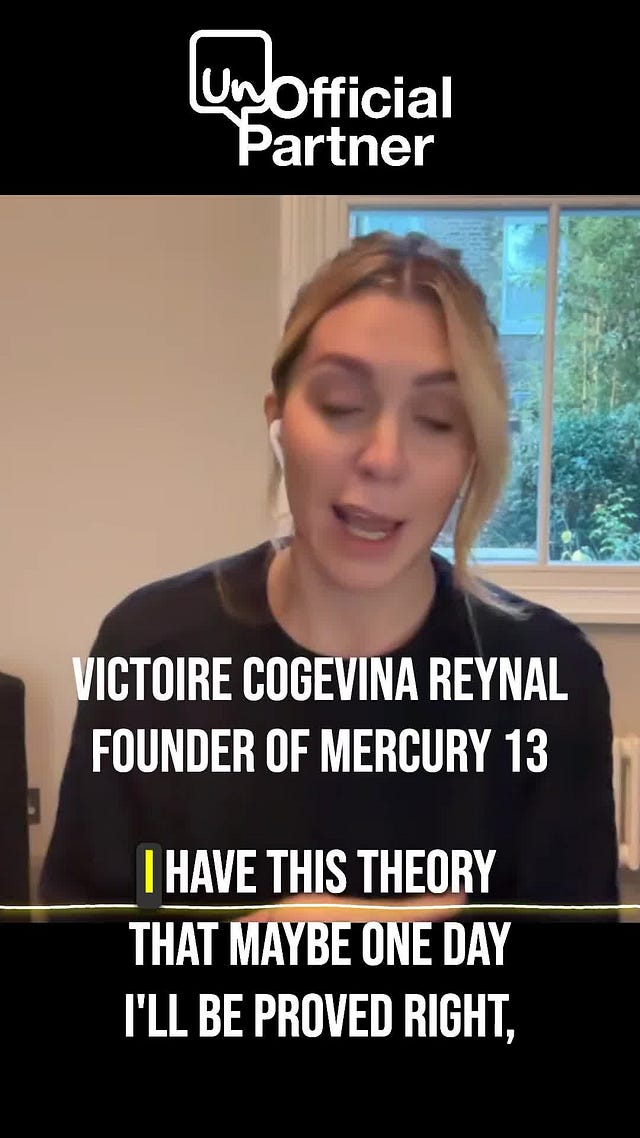Amazon's infinite game; It's Me time; Service as differentiator; Alexa is a Gooner; Mercury questions; Closed league culture wars; Media rights gravy trains; 40 ideas for 2024
Overthinking the sports business, for money
Amazon’s infinite game
The Premier League domestic rights auction is often referred to as a ‘bellwether’ moment.
This is shorthand for: ‘I work in sport and really, really hope the media rights gravy train continues to cover up my obvious deficiencies, both personal and corporate’.
Amazon’s name was conspicuous by its absence.
After six years of a sweetheart deal, they’ve tested and they’ve learnt.
The shopping algorithm now knows more about the Premier League audience than the league or any of the clubs.
Job done.
Second bounce
But don’t be lured in to thinking that Amazon has given up on Premier League football.
It remains - arguably - the single most influential organisation in the sports ecosystem over the next decade or more.
Why?
Personalisation.
That’s the game, the race we’re all in.
And spoiler, Amazon has won already.
It’s done the work, spent billions developing the tech and is now coming to sell you your own audience back to you.
(see our podcast with Tia White of AWS, below).
You’ve been Gamed
Buying and showing live matches feels very 20th Century.
In game theory-speak, the sports industry is playing a finite game - it assumes a set of rules that all players will abide by (those rules are sometimes referred to in terms of ‘ROI’).
By contrast, Amazon is playing an infinite game - it’s framing success and failure entirely differently.
Their play is me.
Not a marketing proxy for me.
Actual me.
But…there are two broad types of personalisation.
The shit type - ‘you clicked on a website once so your data got sold to thousands of adtech spivs…anyway, wanna buy a fridge?’
How Amazon does it - ‘we know you better than you do yourself, and here’s what you want and/or need, whether you’re aware of it or not, you’ll thank us later’.
You can start to see a problem.
Amazon, and a handful of other super brands, have shaped our expectations for quality of service.
Let’s bring this back to sport, before reaching what I’m framing as, the thrilling conclusion.
The difficult road from here to there
Personalisation is one of the big abstract nouns - like data and content - that rapidly loses meaning through repetition.
People start capitalising it for no apparent reason.
It sits atop the Mount Rushmore of bullshit marketing phrases.
Agencies, OTT vendors and tech consultants start to offer it as part of their suite of services.
But, here’s the problem.
It’s really, really hard to do it properly, takes years and is incredibly expensive.
What if, quality of service is the difference between Spurs and Arsenal?
Not at the avid, legacy fan level, obviously.
We’ll take any shit being offered up.
But when you get to those outer rings - the just-here-for-the-beer big eventers and everybody’s marketing wet dream, the global fan - what then?
What are the components of differentiation between clubs, leagues and events?
Story? Local star player?
And well produced, perfectly targeted STUFF, both digital - video clips, goals, BTS, OTD…and real - merch, tickets, club bars in your city etc etc etc.
Which gets us to…
The Other Project Big Picture
Now you’re Spurs and/or Arsenal.
What are you worth?
A one twentieth recipient of a declining media rights outlook?
Or a mini-Amazon with a sticky crowd?
Bit of both, probably.
But how do you get there?
Buy it in v Grow your own
The above sketch is based on a recent conversation with Tia White, the brain behind Amazon’s personalisation engine, in charge of AI and ML within AWS.
It’s part of our Two Circles series, looking at the next ten years.
Tia spoke fresh from AWS’s big client event, reInvent, where they launched Next Best Action, their latest off the peg personalisation play.
Spoiler: If you want to be a bit more like Amazon, you’ll probably have to pay Amazon.
Amazon Personalize is excited to announce the new Next-Best-Action recipe to help you recommend actions that your users have a high probability to take in real-time. Expanding beyond the items or content that Personalize has allowed customers to recommend, this new recipe assists you in determining the next best actions to suggest to your individual users that will help in increasing brand loyalty and conversion. Similar to other Amazon Personalize recipes, Next Best Action does not require ML expertise and allows you to integrate personalization seamlessly into your applications.
So, a choice.
Spend a fortune on the tech and the people who understand the tech, change your organisation’s cultural DNA, hire a generation of entirely different people.
In short, literally become something different.
Or, buy it off Amazon.
Your shout.
See also: Alexa, who will win the Premier League? (Sound on)

 Tiktok failed to load.
Tiktok failed to load.Enable 3rd party cookies or use another browser
Rude.
Mercury pose more questions than they answer
Quite the response to this week’s conversation with Victoire Cogevina Reynal, founder of Mercury 13, the consortium seeking to build a multi-club operation in women’s football.
Hear it here:
Mercury is testing some of the received wisdoms that have grown around women’s football.
I’ve said on the podcast, and will continue to do so here, in a newsletter, that it’s one of the most interesting stories to emerge in 2023.
It’s forcing everyone - club owners, investors, leagues - to look at value in a more rational way.
It comes down to a choice.
Do you believe the hype around the women’s game? That it’s the new new thing, bringing the cool gang of hipsters, families and women to your ground; a bridge to a gene pool of purpose chasing sponsors who see men’s football as a game for UKIP voting, red faced, angry dinosaurs?
If so, keep your women’s team, take it seriously and do the work of capitalising on the opportunity.
Or, do you reject that thesis and think the value of women’s soccer is overblown by a sports marketing industry that has created a world they want to live in rather than the real world, the one which also contains Joey Barton? Do you view your women’s team as a cost to be borne and a leak on your club IP, enabling smart sponsors to get on the shirt for a fraction of the price of the men’s team?
If so, you’ll want to give Victoire a call.
Other questions below, more are available on request:
The headline number is that Mercury has $100m to spend in women’s football. What does that mean, really? Whose money is it?
What happens at the end? If I sell my club, or a stake in it, to Mercury, do I control who they sell it on to later?
The Jim Ratcliffe Question - what’s the point of a minority stake? Is the WSL going to go the NBA route and open up a market for minority shareholdings in league teams? If so, who, what, why etc?
What’s Mercury’s end game? A boutique fund to be bought by a bigger fish further down the road? Is capital ever patient?
Given the complex fan ownership structure of Lewes FC, was it a sensible first target for Mercury? The failure to get the deal over the line is a comms mis-step in what has been hitherto a flawless entry in to the marketplace.
The Super League Question
There’s a culture war aspect to the Super League question.
I got a bit of flak - nice flak, not nutcase Twitter flak - following our DAZN live brainstorm event, which we framed as a debate for and against a closed best v best IPL/NFL type league for women’s soccer.
I get it.
It’s not helpful to the people who are working in the trenches, trying to build a robust ecosystem for the women’s professional and amateur game, if some niche B2B sport vertical podcaster comes along and pokes that sore.
But I find it useful to frame the very real challenges that face the game as it moves forward.
At the DAZN event, some people who hated it began to argue in favour of it, sometimes inadvertently.
My view is that a Super League is a simple solution to complex problems.
Like Brexit, or privatisation.
It might solve some problems but it creates new ones.
And those might be worse than the ones you were tackling initially.
If you’re pro, you’re really pro.
And you will go in search of evidence to support your very narrow, partial position.
Which isn’t helpful.
In search of nuance, two slight builds
What if, a closed league was created and owned by the nice people not the bastards?
Disruption rarely comes from within, but if it did, it would allow those in charge to focus on the negative second bounce externalities in a considered way.
2. Time.
What happens if you put a time frame on league closure?
A period of consolidation rather than a life sentence.
Does that help?
Anyhow.
I asked Victoire whether she like the idea of closing the league for a while.
She paused, knowing that her answer will be written down and repeated.
Then she said, yes.
Listen to the pod.
It’s good.
Meanwhile, her FC Barcelona conspiracy theory is worth two minutes of your time.
Shorts
Andreessen Horowitz asked its forty partners for one big innovation idea for 2024
‘I’m not sure I can make that work’ - Gerry Cardinale might have hit an inflection point.
If you liked the newsletter, please like the like button below.







